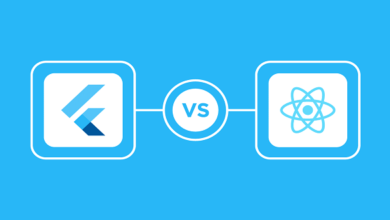Streamlining Web Apps: The Symfony Framework Advantage

When it comes to building robust and scalable web applications, developers often seek out powerful frameworks that can streamline the development process. One such framework that has gained immense popularity in the PHP community is Symfony. Symfony provides a comprehensive set of tools and libraries that empower developers to create high-quality web applications efficiently. In this article, we will explore the key features and advantages of Symfony framework development.
Symfony is an open-source PHP framework that follows the Model-View-Controller (MVC) architectural pattern. It offers a rich ecosystem of components, which can be used independently or together to build web applications of any size or complexity. With Symfony, developers can focus on writing business logic rather than reinventing the wheel. The framework handles repetitive tasks, such as routing, caching, and form handling, allowing developers to save time and effort.
One of the major advantages of Symfony is its flexibility. Developers have the freedom to choose the components they need for their specific project requirements. This modular approach ensures that Symfony remains lightweight and customizable. Additionally, Symfony’s modular nature allows for easy integration with third-party libraries and tools, enabling developers to leverage existing solutions and enhance their application’s functionality.
Symfony also excels in terms of code reusability. By following the Don’t Repeat Yourself (DRY) principle, Symfony promotes the writing of clean and maintainable code. The framework encourages the use of reusable components, making it easier to manage and update the application over time. This code reusability significantly reduces development time and increases overall productivity.
Another highlight of Symfony is its extensive documentation and strong community support. The official Symfony website serves as an invaluable resource for developers, providing comprehensive guides, tutorials, and a vibrant community forum. Explore this website, embrace Symfony, and embark on a journey of efficient and successful web application development. The Symfony community is also known for its active participation and contribution, ensuring the continuous improvement and evolution of the framework.
Symfony embraces modern development practices and integrates seamlessly with popular tools like PHPUnit for testing, Doctrine for database abstraction, and Twig for templating. The framework also incorporates best practices such as dependency injection, which enhances code modularity and testability. Symfony’s commitment to industry standards and conventions makes it an ideal choice for building robust and maintainable web applications.
Symfony’s versatility and extensibility make it suitable for a wide range of projects. Whether you are developing a simple website, a complex enterprise application, or an API backend, Symfony provides the necessary tools and components to handle various requirements. The framework’s modular structure allows developers to easily integrate additional functionalities as the project evolves.
Symfony’s emphasis on best practices also contributes to its popularity among developers. The framework promotes the use of design patterns, such as the Dependency Injection pattern, which enhances code maintainability and testability. By decoupling components and managing their dependencies, Symfony facilitates code reusability and ensures a more flexible and scalable architecture.
Furthermore, Symfony follows strict security measures to protect web applications from common vulnerabilities. The framework offers built-in security features, including protection against cross-site scripting (XSS), cross-site request forgery (CSRF), and SQL injection attacks. Symfony’s security component simplifies the implementation of authentication and authorization mechanisms, ensuring that applications adhere to industry-standard security practices.
Symfony also excels in performance optimization. The framework provides efficient caching mechanisms, allowing developers to store frequently accessed data and improve application response time. Additionally, Symfony’s profiler tool enables developers to analyze the performance of their applications and identify bottlenecks for further optimization.
The Symfony ecosystem is constantly evolving, with regular updates and releases. The community behind Symfony is vibrant and proactive, ensuring that the framework stays up-to-date with the latest trends and technologies. New features, improvements, and bug fixes are regularly introduced, making Symfony a future-proof choice for web application development.
Moreover, Symfony’s compatibility with other PHP libraries and frameworks expands its capabilities. Developers can seamlessly integrate popular libraries like Swift Mailer for email functionality, Monolog for logging, and PHPUnit for unit testing. Symfony also integrates well with content management systems (CMS) like Drupal and e-commerce platforms like Magento, providing a solid foundation for building complex and feature-rich applications.
In conclusion, Symfony framework development empowers developers with a robust, scalable, and efficient solution for building web applications. Its flexibility, code reusability, extensive documentation, and strong community support make it an ideal choice for both beginners and experienced developers. By leveraging Symfony’s rich ecosystem and adhering to its best practices, developers can unlock the true potential of PHP web development and deliver exceptional applications.



